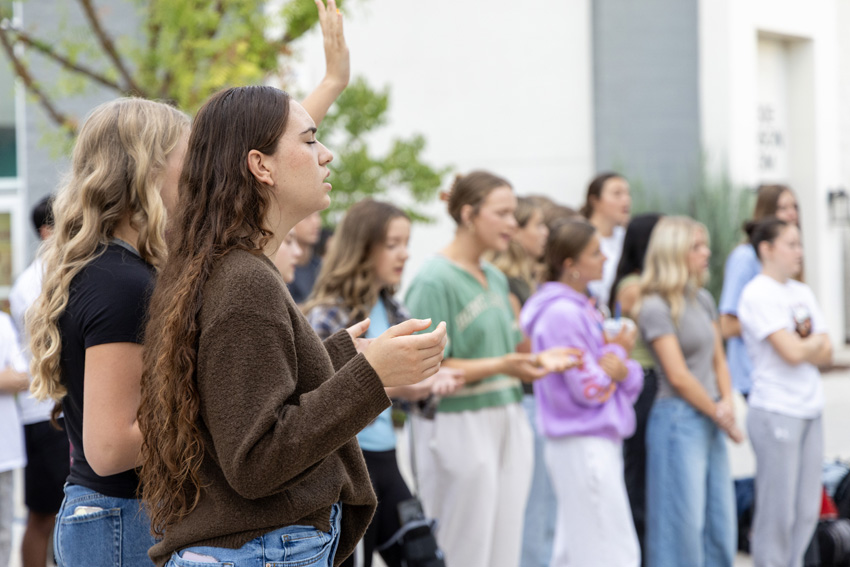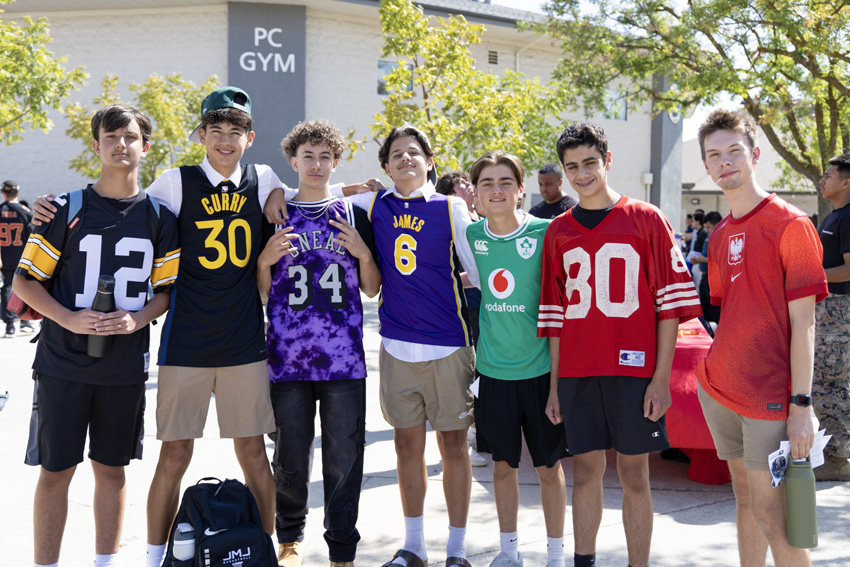Instead of a Bible verse test or a Faith Film Friday, Robert Foshee’s third period Bible class spent their class time learning to make water purification kits for a ministry group called Project Glory, Feb. 5.
Project Glory was founded in 2006 when a group from Fresno, California traveled to Swaziland, a country surrounded by South Africa. After returning to the United States, the group felt a burden for the people and their situations and felt they needed to help further than they already were helping.
Now, with 700 volunteers and numerous churches involved, Project Glory has flourished from its meager roots and is now a thriving ministry under the direction of Central Community Church in Fresno. Project Glory is partnered with Shiselweni Reformed Church Home-Based Care which teaches the people of Swaziland to care for each other.
With the recent disaster in Haiti and the growing need for clean and dependable water all over the world, Foshee had the idea to invite Project Glory representative Wendi Hammond to his class. Hammond came to the class in order to educate students on the condition of Swaziland and to show them how to make WAPIs.
“Africa’s a place we should really invest our time in,” Hammond said. “The mission of Shiselweni Base Home Care is to be the hands and feet of Jesus in their communities. What we’re doing is enabling them to be the hands and feet of Jesus.”
The WAPI, or water pasteurization indicator, are small plastic tubes about the size of an index finger. Placed inside the tube is soy wax, which melts at 140 degrees. The WAPI is put inside a bottle of water and placed out in the hot African sun. When the wax has melted, it is apparent the water is pasteurized because water is first pasteurized at 140 degrees. A WAPI costs about 41 cents to make.
“The WAPI is important because it helps families access safe and clean water when there’s literally no other way to get it,” Hammond said.
Daniel Andrew, ’12, found great interest in Swaziland and the WAPI system and says the presentation was thought-provoking.
“Everything she showed us was very interesting,” Andrews said. “I had no idea anything like that was possible with that little material and could be manufactured for such a small price.”
Foshee was equally as impressed as his students, and video-taped the demonstration for his other classes to watch.
“The WAPI is simple and could help a lot of people,” Foshee said. “Something like this makes you realize how good we have it and how simple it is to impact someone.”
Hammond will be with a group of students returning to Swaziland on Feb. 17. After the demonstration ended, Hammond also encouraged the class to take the 100 WAPIs she gave Foshee and assemble in order to send them to Swaziland.
“Our mission statement is to partner with the local church,” Foshee said. “Doing this is a cool way to live that out.”
For more information on Swaziland or Project Glory, e-mail Foshee.







Bree Ainley • Jan 29, 2011 at 12:02 am
This is cute! I had a lot of fun with Andrew and Ash that day (: